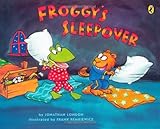Should Glitter Be Banned? One Researcher Certainly Thinks So!
Language
Reading Level
Listen to Article

For most people, the mention of glitter brings back fond memories of colorful preschool and kindergarten projects. However, the sparkly material is also prevalent in everyday grown-up products like makeup, decorations, and even iPhone cases. Unfortunately, while the fairy-dust-like substance is great for lifting our spirits, it is not so good for the environment, which is why one researcher is calling for a worldwide ban.
As you may or may not be aware, the shiny flecks are made using aluminum and PET, a plastic which does not decompose for decades. What makes glitter, and other microbeads used as exfoliators in face scrubs and soaps or to add texture and color to products like toothpaste and lip balms, dangerous is its diminutive size. Measuring less than five millimeters in length, the microplastics pass unfiltered through sewage treatment systems, into rivers and canals and eventually, the ocean.

In 2009, a study led by Professor Richard Thompson at UK’s Plymouth University discovered that one in three fish caught in Great Britain had ingested microplastics. A 2015 paper published in the journal American Chemical Society found evidence of polymer in the tiny zooplankton that form the base of the oceanic food chain. A more recent study by researchers at the State University of New York at Fredonia and the University of Minnesota examined 12 different kinds of salt, including ten sea salts, and found all contain microplastics. Trisia Farrelly, a social anthropologist at Massey University in New Zealand and an expert in waste plastic, says, "They really do get into everything, and despite their tiny size, they can have a devastating impact on humans and non-human animals.”

Farrelly is particularly focused on banning glitter, but not because the shiny material is the primary cause of the trillions of pieces of microplastics polluting our oceans. Her concern is that though many countries, including the US, UK, and New Zealand, have banned the use of microbeads, glitter is only restricted if present in cosmetics and personal products. The plastic material is not prohibited if used for other purposes.
Since most experts believe getting rid of glitter is not going to make a dent in the plastic crisis, a worldwide ban is probably not going to become a reality anytime soon. Fortunately, companies and organizations have begun taking the initiative themselves. In the UK, many preschools have banned the shiny material from their classrooms, while cosmetics manufacturer Lush has replaced it with a natural, eco-friendly product. Consumers who wish to join in the effort now also have the option of purchasing environmentally-friendly glitter, that not only reduces plastic pollution, but also does not stick to the hands!
Resources: ecowatch.com, fortune.com,bbc.co.uk,fortune
Cite Article
Learn Keywords in this Article
1280 Comments
- lil wayneover 6 yearsno it should not
- Unknownover 6 yearsC'mon, you people know the dangers. Yes, I know, glitter is pretty and shiny, but maybe the article is right. Maybe we'd have to use 0% PET or aluminum and switch to a better one.
- Unknownover 6 yearsHonestly, Idk that glitter d'be that bad, but now I see the dangers.
- Misty354over 6 yearsI think glitter should be banned also because it just hurts the environment and some people don't get that. I wish that everyone could come to their senses and start helping this world be clean once again.
- tracealmost 7 yearsms. Park i like it
- jamesalmost 7 yearsgood
- tracealmost 7 yearsi like it
- jamesalmost 7 yearsgood
- hotgal1almost 7 yearsglitter is my beauty product
- zayzay132almost 7 yearsi think glitter should be banned cause it not good for our animals or anything so dear lord help us all animals




